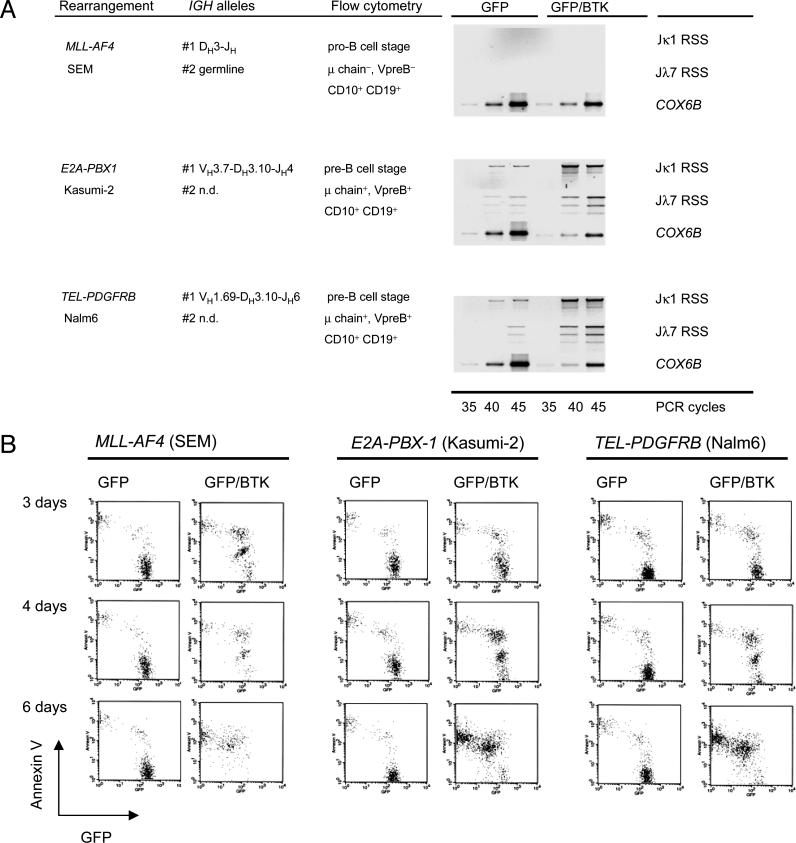Fig. 4.
Reconstitution of BTK expression in acute lymphoblastic leukemia cells initiates differentiation and induces propensity to apoptosis. Acute lymphoblastic leukemia cell lines carrying either an MLL-AF4 (SEM), E2A-PBX1 (Kasumi-2), or TEL-PDGFRB (Nalm6) gene rearrangement were characterized by sequence analysis of their IGH loci and flow cytometry. The leukemia cells were transduced either with a retroviral MIG_GFP or a MIG_BTK-IRES-GFP expression vector. GFP-expressing cells were sorted and genomic DNA was extracted from the sorted cells. Amounts of genomic DNA were normalized by amplification of a genomic fragment of the COX6B gene. Genomic DNA from cells transduced with the control MIG_GFP-vector or MIG_GFP-IRES-BTK was subjected to ligation with a double-stranded DNA-linker of known sequence. To detect DNA double-strand breaks within the IGK and IGL loci, linker-ligated DNA was subjected to ligation-mediated PCR by using linker-specific primers together with primers binding to recombination signal sequences flanking the Jκ1- (Jκ1 RSS) or the Jλ7-gene segment (Jλ7 RSS). Sorted GFP-expressing leukemia cells were also kept under cell culture conditions for 3, 4, and 6 days, and preapoptotic cells were labeled with annexin V. After 6 days, almost all BTK-transduced leukemia cells underwent apoptosis, whereas viability of leukemia cells transduced with the GFP-control vector remained unchanged (B).

